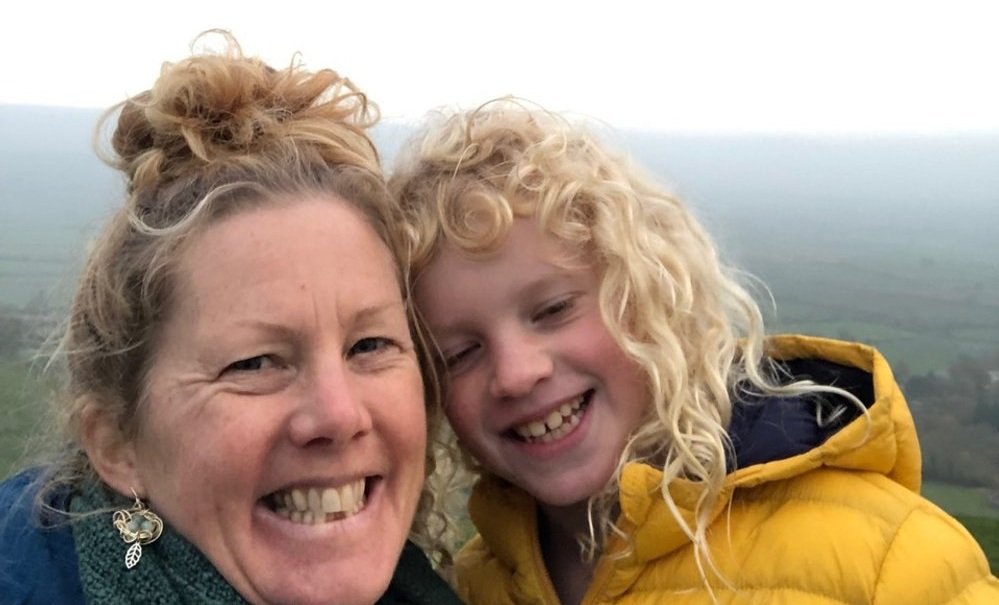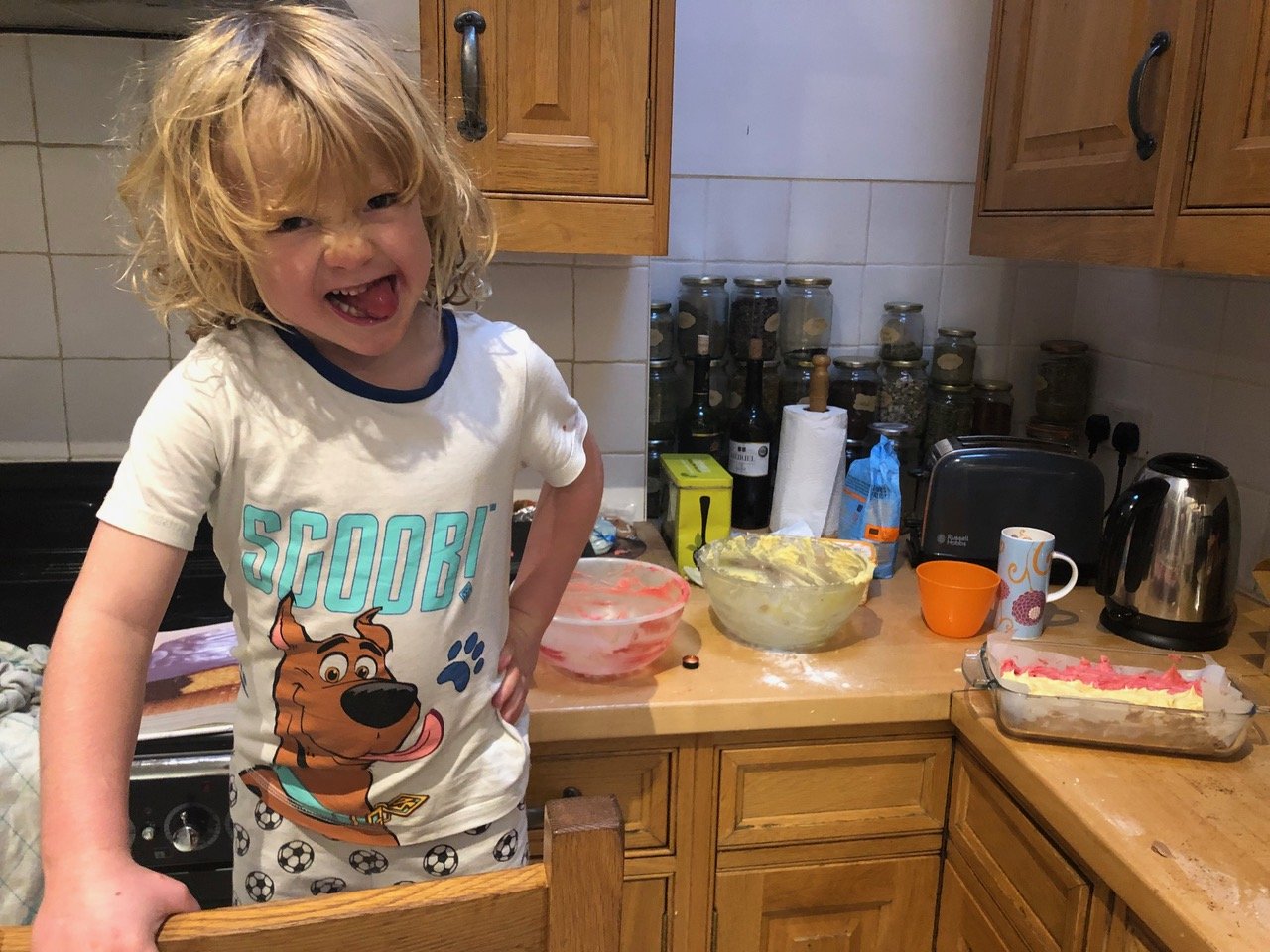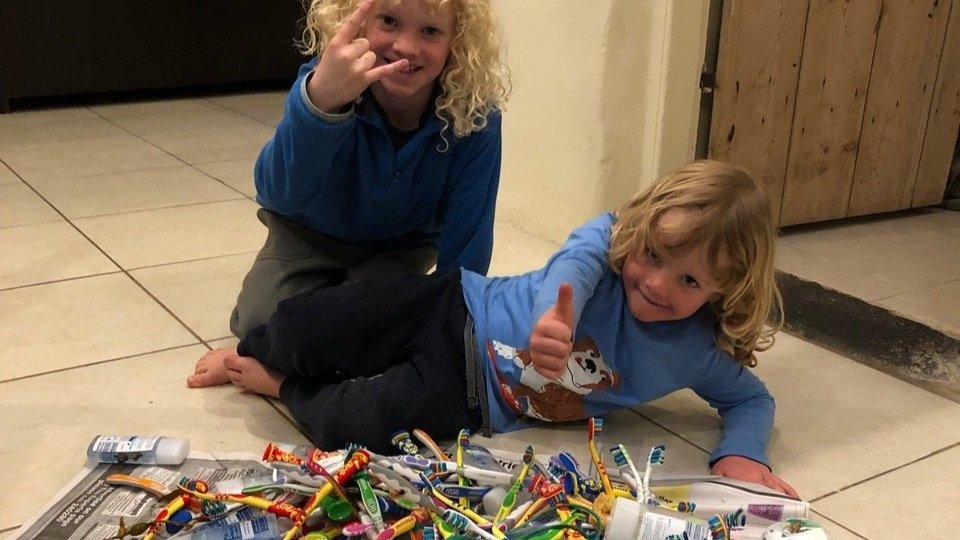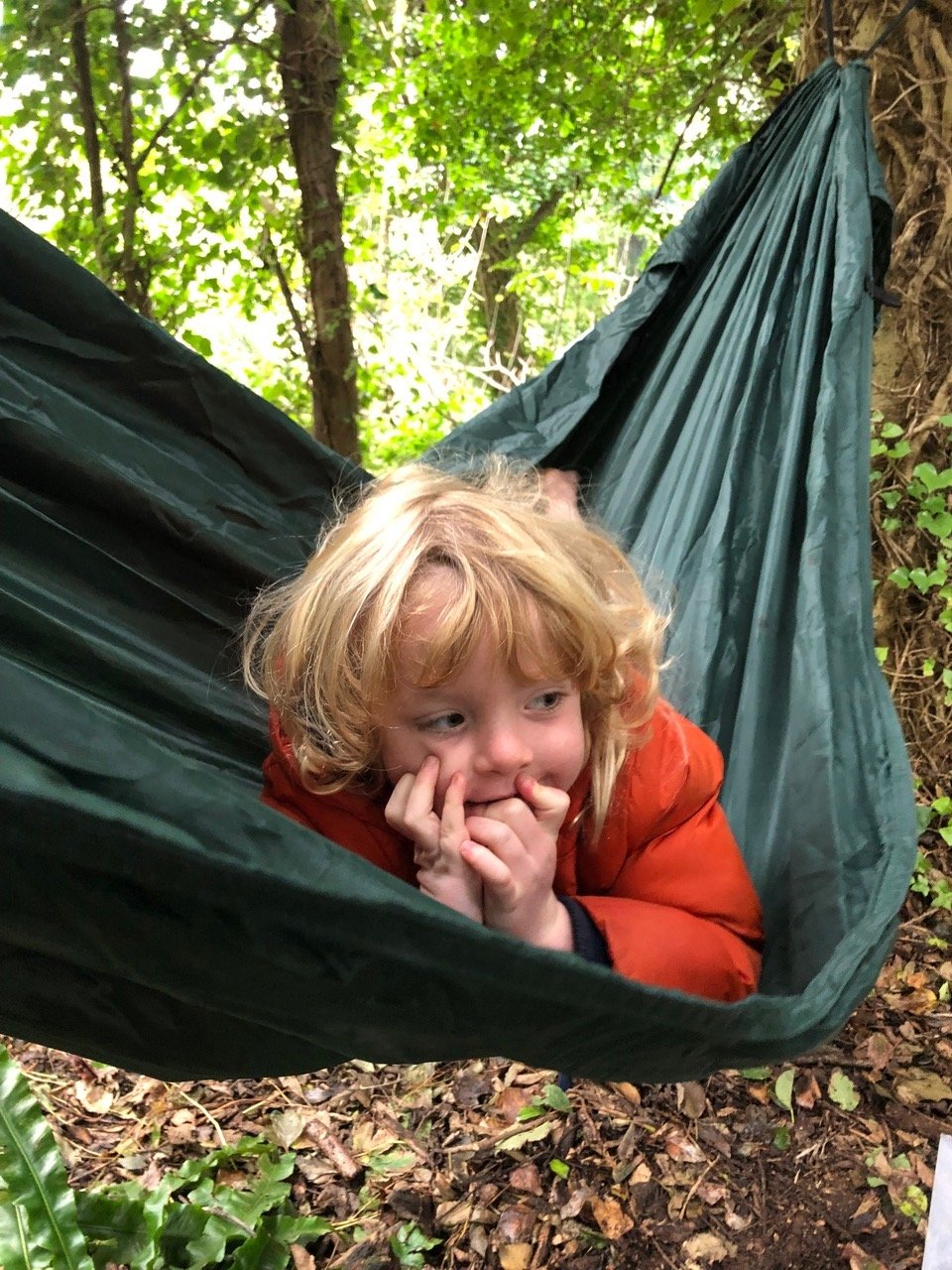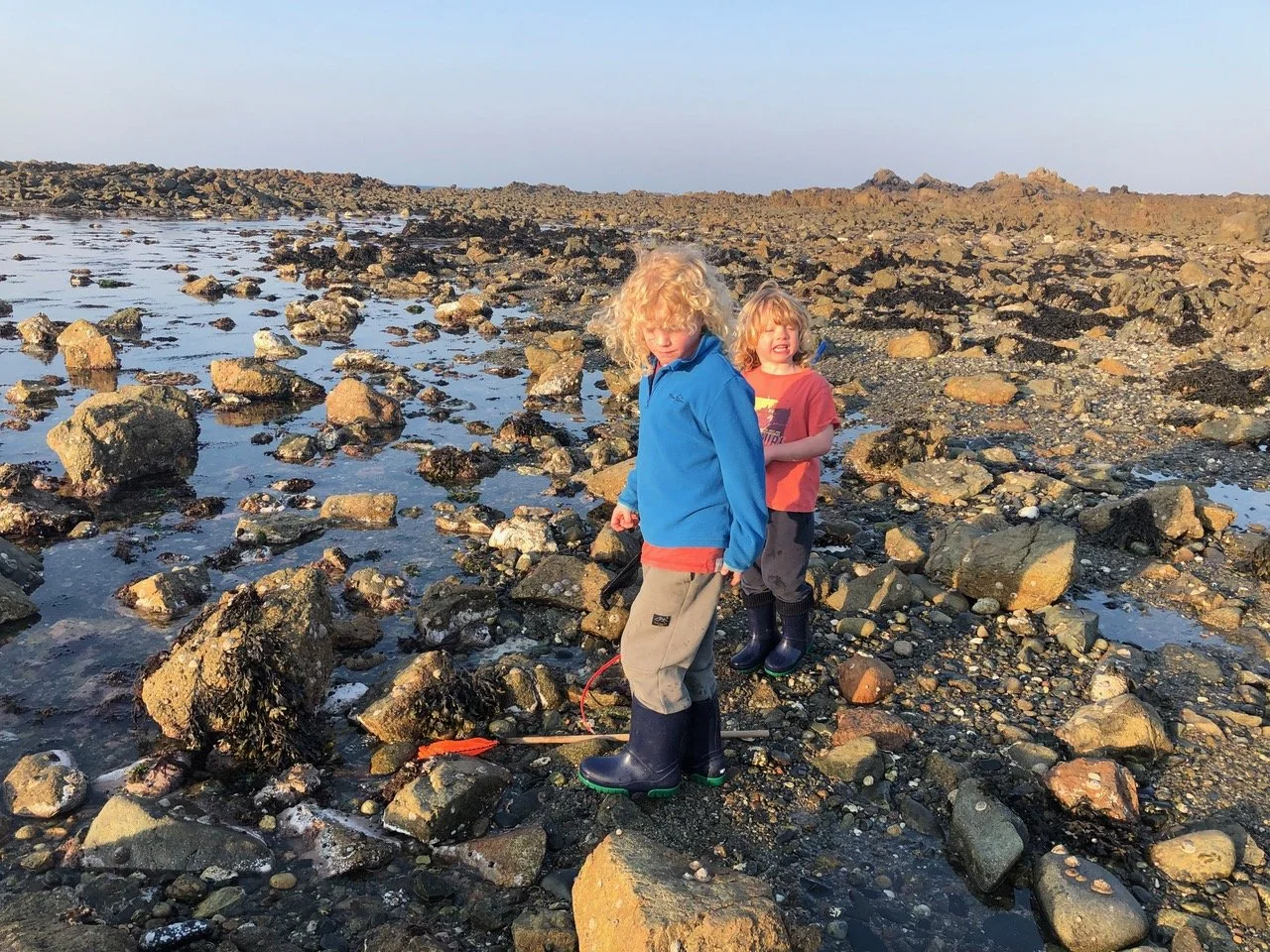Our homeschool journey (part 1)
Our homeschool journey (part 1)
Curriculum
The first question people usually ask when they hear we are home schooling our two boys is whether we have to follow a curriculum. The quick answer is no. We are lucky on Guernsey, in so much as there is no curriculum to follow at home.
I am very grateful for this. Education before the national curriculum - so I am told – was much more child centred than it has been since the curriculum was introduced in 1989. Now it seems to be all about results and achieving, this at the expense of the child’s positive school experience.
Please note though, that an application has to be made to the Education Department to be entered on the Home School Register and they do visit periodically to assess the standard of education that you are providing to your home schooled child(ren). This to ensure that it meets the children’s needs in terms of demonstrating that they are receiving an adequate education and are essentially safe.
People also comment on how challenging they found the pandemic and educating children at home. I quite agree. It was an absolute nightmare and highlighted to me the pointlessness of enforced learning, learning for the sake of learning, regardless of whether the child finds it of interest.
This is where home schooling can differ enormously. Without being tied to a curriculum, we have much more freedom for child-led learning, an unschooling in many respects, to undo much of the confusion which our children may have experienced from attempts to push them through their early years schooling.
People also tend to comment on exams, how on earth will the children survive in this world without their maths and English GCSEs? This of course assuming that home schooled children won’t one day take exams. Which is not the case, home schooled children can still take exams, just that parents have to pay for it.
However, there are ways to be in this world that do not require GCSEs. For example, for Ewan to garden and for me to teach yoga and Reiki, neither of us has needed to evidence a single GCSE. Elijah (10) and Eben (7) are already qualified Reiki practitioners (Elijah now a Master), as are some of the other home school children, they could set up their own Reiki practice in years to come, helping others while supporting themselves without the need to take a single exam.
Don’t get me wrong, I loved school, I love learning, I love accruing qualifications, I am grateful that my parents afforded me the luxury of a university education, and that I was given the opportunity to professionally qualify without having to pay for the privilege myself. All of this enabled me to get a well-paid and secure job in the local finance industry, with opportunity for climbing the career ladder, but it did not make me feel happy or fulfilled.
At times I merely felt like a mind for hire, sitting in an office environment filled with artificial lighting and EMF, using only my brain, as if I didn’t have a body, beyond the need to feed it and go to the toilet! Having to deal with office politics went contrary to my understanding of kind human relationships and was extremely tricky to navigate as a sensitive being. Thus I ended up feeling desperately depressed, conforming to a way of life that didn’t fit, not at heart and soul – my book From Darkness Comes Light writes more about this.
The system
But our education system doesn’t care much for heart and soul. It cares about productivity for the sake of productivity and achieving for the sake of achieving. It cares about training children to be minds for hire, building their intellect at the expense of everything else, of passing exams and creating good school stats, and whether we, as a society, are developing diligent workers and tax payers.
In many ways I didn’t choose to home school my children, they chose this for themselves. I won’t try and pretend that I’m not pleased however. Certainly I had an inclination to veer away from the mainstream and this caused me to dip in and out of the local home school community since Elijah was a toddler.
But we did what was expected of us, such was our conditioning, and while I may have questioned it, I am not the only parent in this family and so we followed along like sheep, placing our very sensitive son into pre-school just before he turned 3.
This was a traumatic experience for us all. Elijah was perfectly contented until that time, sharing his week with mummy, daddy and his much loved grandparents. There was no need to change this, but for the pressure to conform and so we did what we did and have paid the price ever since with a child who still suffers with separation anxiety, albeit improved from those earlier years.
This because it was perfectly normal at that time to leave a crying child with complete strangers in a roomful of unknown children. We were told he would soon settle, but I have always been conscious of destroying the spirit of my children in the quest to fit them into a society that (I feel) is broken. Thus he didn’t last long at that pre-school, too long though, I should have trusted my intuition, but we live and learn.
One of my greatest learnings as a mum, is trusting in the inner voice that tells me something isn’t working for my children and then having the courage to do something about it. Because it does take courage to go against the flow of society, especially when other family members do not share our intuitive nudge – our conditioning can run deep, so too caring what others think and their flitting opinions and views of us.
This has also been a lesson in many respects, and one that continues, because there are always levels to it. When I reflect back – and hindsight is a wonderful thing – I am amazed how much my decision making has been based on caring about other people’s thoughts and opinions. It’s nonsense really, as our thoughts are no more real than our feelings, and they chop and change depending on what is happening in our lives and the clarity of our mind in any one moment.
Yet, so many of us make our choices based not on love and intuition, but on our social conditioning, that drives us to ‘fit in’ and be accepted come what may. This to the extent that we often don’t feel we have a choice.
On another level, we give our power away, doing things which don’t sit easily with us, but at least ease the discomfort and anxiety of going against the grain and any friction this may cause with others who have a vested interest in the decisions we make.
Needless to say, and creating angst between Ewan and I, another pre-school followed six months later with an extended settling period, such was his anxiety, and another tearful child, left with other people while mummy and Eben (now in this world) returned home. The memory of Elijah’s pale and sad face waving at us from the window of the pre-school will probably always be etched into my memory. On a positive note, it was a small pre-school and the ladies very much cared about our son. Still, it was a relief when pre-school was done.
Primary school
As is the norm, primary school followed. If we thought the transition to pre-school was traumatic then this raised the notch. Such was my resistance that I didn’t apply for a place before the deadline, but alas, if I thought my procrastination would get me, Elijah, us, off the hook then I was mistaken. School was absolutely the expected path and the late application was duly made and we were given a place at our catchment school, the largest on the island.
It helped enormously that I knew the Headteacher and Elijah’s Reception teacher from my work. They were both aware of my concerns and were keen to ensure a smooth transition. I remember asking what might happen if Elijah didn’t settle but this wasn’t viewed as a possibility – in so much as all children eventually settle. Or don’t. It had never crossed my mind that many children simply endure school, have little choice, this because my own experience had been so positive – I literally hadn’t wanted to leave education.
It still seems odd to me now that it’s deemed OK by our society to impose our will over children, regardless of their lack of enjoyment or engagement, and push them through a system that brings absolutely no joy. People will say that it prepares children for an unforgiving world. I feel it’s an indication of just how messed up we are as a humanity that children’s wellbeing, genuine wellbeing , is given such little regard and exam success and school stats/validations are given priority.
I am conscious that this is not the fault of the teachers. For the most part they come to teaching because they feel passionate about being with and educating children. Not only that, I am also conscious that school plays a role beyond learning, in so much as it is a safe space for many children, and certainly provides some level of comfort to those who are underprivileged – teachers will often do their best to clothe and feed children from their own pocket – and has a social and community role to play too.
So while my children refer to school as a prison, that is not everyone’s experience and it was certainly not mine. I wanted to be a teacher because I loved school that much, but with two teaching parents who gave education their all – my Dad Headteacher of a local primary school, seeing it through to the highest validation before leaving the profession for a HR role and my Mum a maths teacher and youth worker at one of the local secondary schools before also leaving the profession for a similar HR role in finance - there was a sense of it being an undervalued occupation and soul destroying at times too.
This was back then before the increasing conformity and uniformity and the additional pressures currently placed on teachers by unforgiving and public shaming school inspections and trying to meet all the current needs of children with a variety of diagnoses and socio-economic issues, the pressures from the new woke over gender identity, let alone the fall-out from the pandemic and lack of finances and access to resources etc.
Needless to say, the transition for Elijah was not easy. He hates noise and being a large school it was noisy. Lunchtimes were especially difficult. He had never stayed at pre-school for lunch as that was always a step too far and he was used to eating a cooked lunch at home, and so the switch to a packed lunch was challenging. So too the noise in the playground which was overwhelming for him and this despite the efforts of the staff to manage a quieter space for other overwhelmed children.
Taking an anxious, tearful and resigned child to school each morning was wearing and I found myself soon stressed, because I was once again acting against my intuition. I developed a skin condition as if to highlight the inner angst and while this sent me on a healing journey I knew that ultimately it was a combination of the frustration and stress of not being able to follow my heart in the way I was parenting and the resentment towards Ewan for not seeing the reality of our son’s angst and inability to fit in.
We ended up with little choice – or so it felt – but to collect him each lunchtime. This made drop-offs easier and at least we could be assured he was eating and was less stressed by the lunch-time experience. This did complicate things for us however, and while I had been progressively moving away from my job as company secretary of a CI-based investment business, I now needed much more flexibility. We were lucky though, in having the unwavering support of grandparents who helped with lunch time pick-ups and drop-offs.
We know now that Elijah is on the Autism Spectrum and loathes noise and people watching him. He is also dyslexic, so of course school was a difficult place, he didn’t understand a lot of the learning and endured his days as best he could, bored for much of it and longing for lunchtime and home time respectively. It was heart breaking as those of you who have experienced something similar with your children will understand.
I volunteered as much as I could during his infant years, at swimming, reading, teaching yoga to his year group, going on trips, I even taught yoga to the teachers. The pandemic interrupted Elijah’s year 1 and 2 and this was a blessing in many respects because we didn’t have to manage the separation, but it also highlighted how disinterested he was in academic learning. I continued the home schooling until the various restrictions finally dropped away and tapped in again to the local home school community.
This community is very forgiving. Now on the other side of it, I know how much time and energy can be wasted in conversations with people who are curious or contemplative of home schooling but who don’t follow through with it. I was one of those people for a good while and I am always grateful to my home school mum friends for giving me their time and energy as I dipped in and out of their lives, incapable of making the leap because of the lack of support at home.
By year 3 and the jump to juniors, Elijah’s anxiety had reached an unprecedented level to the extent that each morning was literally torturous. There was a routine we had to follow – beach, eat, public toilet, school. Even then, he would try and move away from the school entrance, rubbing his hands together relentlessly, crying, begging me to take him home. He needed to know what was happening that day and I would have to repeatedly run through his schedule, which demanded my patience, the same questions being asked over and over again despite my answering them.
The teaching assistants manning the door were lovely and did what they could, trying to coax him in, the obligatory hand sanitiser a momentary distraction and we would all try to reassure him that he was safe, that it was OK and that one of us would be back at lunchtime to collect him, and I would feel such relief when they had manage to get him through the door and into the classroom.
It didn’t help that I knew he was struggling academically and much of the learning, now predominantly classroom based was tricky for him. This was a boy who loves being outside, who loves to run and climb trees and rocks, who loves to be free. Now, in the juniors, there was none of the outdoor play or discovery zone, it was much more about sitting and producing for the sake of producing – and this for a 7 year old!
He would get upset during the day, especially if he didn’t know what was happening next, his ‘go to’ is crying and he would cry simply because he was missing us. Tears in the classroom were not encouraged and this alone made it difficult for him. It is very old school to me now this idea of children being told not to cry, and was in conflict to our approach at home, which has always been about allowing tears, and emotions generally, to flow.
Fortunately he had made friends with two children in Reception who remain his best friends to this day, one of them is a regular visitor in our home and I shall always be grateful to her for being Elijah’s guardian angel and making his school experiences less torturous – I shall also be grateful to the teachers for not separating these three children as they moved up the school as is often the way these days.
Elijah started to look really pale and withdrawn. His sleep became disturbed and he stopped wanting to eat in the morning. He was paranoid of needing to use the toilet at school and this caused him to control what, when and how he was eating. We liaised with the school about all of this, the fear of using the toilet is common, and while steps were taken to help him feel less fearful, the mental block was well established by then and no amount of reassurance made any difference.
My parents noticed a change in Elijah too. He was losing his spark. It didn’t help that Eben was witness to all this, as he started Reception that same year and was on the back of my bike awaiting his own drop-off further around the building. This did not set him up well for school – seeing his brother so terrified of the separation set in motion his own, and I would have to hand him over to staff in tears too. Needless to say I would frequently leave the school grounds in tears myself.
We took professional advice from a local child psychologist who felt that Elijah would fare better being educated at home, that if we didn’t take action, things would only worsen. It was also suggested we have him assessed for Autism, which on the one hand came as a surprise and yet on another didn’t. We had always known that Elijah was slightly different, but we were always told that he was too young for any form of assessment, whether that be for dyslexia or indeed Autism.
This professional was also very conscious of the bigger picture and has concerns about the world we are creating by ignoring our children’s individual needs and placing them in environments which overlook their sensitivities and slowly destroy their spirit. He helped Ewan especially, to get through his private school conditioning, to understand the reason we couldn’t keep on keeping on, without causing longer lasting damage to Elijah and just feeding more of the mental health crisis that we are currently experiencing as a society.
“Failure”
Interestingly, and I am sure he won’t mind me being honest, Ewan very much saw the prospect of home schooling as a failing, as if we had somehow failed and as if our child had somehow failed to fit in. I couldn’t quite understand this because he had not enjoyed school and left it feeling a failure himself, an experience shared by my brother whose dyslexia was always a hindrance. So by my logic I expected him to understand more than most, the benefits of taking Elijah out of an environment which might also cause him unnecessary trauma and feelings of failure.
The trouble is, our social conditioning towards education being key to us being accepted by others and to providing us with a level of acceptance is very deeply ingrained. While Ewan loathed his private schooling experience, he still felt as if it would one day be the right choice for our own children, simply because of being sold the idea that it is giving your children the very best chance in life. For many, this may well be true, but for sensitive souls like Elijah who are not academically pre-dispositioned it was actually more of a hindrance.
To grow up feeling a failure does not set one up for succeeding in any occupation, or indeed put us in good stead for healthy relationships as those of you who struggle to love and accept yourself know only too well. It just creates the potential for under development, of not having the confidence to fulfil one’s potential because one has been told repeatedly that one is not enough simply because one is not able to prove oneself academically.
Success
It is nonsense of course, we cannot be a world filled solely with lawyers and doctors and CEOs, we all have something to contribute to society and some of the seemingly meagre jobs are actually the most valuable to society, as demonstrated by the pandemic, even if they are not financially rewarded as such.
Financial reward also comes up with education; simply because one’s earning potential is still viewed as a barometer of success by the majority. To me this is also nonsense because financial wealth does not bring contentedness or happiness, or love or kindness, as many of you know. Yet our patriarchal society is driven by consumerism and the drive to acquiring stuff, and the need for accumulating wealth as if this alone will not only prove our own worth, but demonstrate to others – as written above – our success.
The very fibres of our society are based on this understanding. Thus to reject formal education as a path to self-worth and success goes against everything we have been taught/brain washed/conditioned to believe about life here on Planet Earth. To imagine a world which is not based on capitalism and the drive for wealth is scary for most, because what then?
Goodness, imagine for a moment, a world where our thriving as conscious beings is centred around our vitality and fulfilment, where livelihood and way of living is given more credence than the notion of career and work for the sake of working. What a world that might be! If only we could all start to dream it into being.
Conforming
Don’t get me wrong, I love working. But I love working in a way that fulfils me and works for my family. It is not about working for the sake of working, but working because of being passionate about what I am sharing, and creating a way of living that is financially sustainable and emotionally, spiritually and mentally uplifting.
I could earn vast sums more working in the finance industry but choose not to because it doesn’t make me feel good, and what is the point of spending my life not feeling good just to have a bigger house, posher car, more clothes and more trips away. This, before I even talk about the impact of commercialism and capitalism on sustainability and my feeding of it in the finance industry, let alone the future we are creating on Planet Earth for our children by our greed and constant need for more.
I am not saying that other people shouldn’t make those choices, just that I do not wish my children to feel the pressure of conformity and sacrifice their wellbeing in the process. I also would rather they did not base their self-worth on their earning potential because I have experienced for myself – and witnessed others experiencing this too - what happens when that income source drops away, whether that be because of redundancy or a contract ending or business failing etc., people crash and wonder who they are, underneath all the titles and labels they have taken on as their identify.
Ewan was really struggling with the home schooling, not helped by some of his more traditional friends who simply could not see beyond their own conditioning and questioned what might become of Elijah, whether we might find ourselves increasingly on the fringes of society and how we might therefore be viewed by others. All of this, again, seemed ridiculous to me simply because I am very happy living on the fringes and honestly couldn’t care less what others think and do not see home-schooling as a failing regardless.
Thus I shall always be eternally grateful to this wonderful professional for his validation and support. We each of us have free will, which means we always have choice. The problem is, we don’t always realise we have a choice. And we don’t always know what to do with that choice even when realised. Furthermore, we sometimes need courage to make that choice. He helped to give me the strength I needed to find the courage to make that choice, which came from the heart ultimately.
The final straw
It was clear that the education ‘system’ could not meet the needs of Elijah despite the best efforts of the teachers – not least the environment, but the approach to learning and the uniformity and herding which is necessary for controlling the masses, but doesn’t always bring out the best in all children, especially those free spirits amongst them. Often those children are seen as problem children, disruptive to the class, and they are, not because there is anything wrong with them, just that they don’t fit the system.
My parents were concerned about the notion of home schooling as it went against their educational training and background. They truly believed that school should meet the needs of all children, but they could clearly see for themselves that it was not working for Elijah. Thus they agreed to help me with the home schooling, not least the actual learning, but having Elijah a day and a half a week so that I could continue working.
Ewan also realised we had little choice and while it took him an awfully long time to come to terms with this decision, he was also able to have Elijah a day a week. This meant changes to both our schedules, but I knew that if we all pulled together then we could make it work.
Life is never perfect, that too is a false conditioning. We were not in a financial position where we could stop working and often this is the greatest obstacle to home schooling. However, I am a great believer that if you are following a path of heart then the way will reveal itself to you when you have the courage to take the first step. We had no certainty of outcome, no way of knowing how it might unfold but we knew we needed to do something to essentially save our child.
So the day before his 8th birthday we took Elijah out of school and applied for a place on the Home School Register. His first few days of official home schooling were spent with me on a road trip in the UK to the spiritual sites of Avebury, Stonehenge and Glastonbury to lift both our spirits. Thereafter, on the recommendation of the psychologist, we placed Elijah on six months repair, with very little formal education bar the maths my Dad was doing with him and the private dyslexia session he attended once a week with a dyslexic professional.
Part 2 to follow

